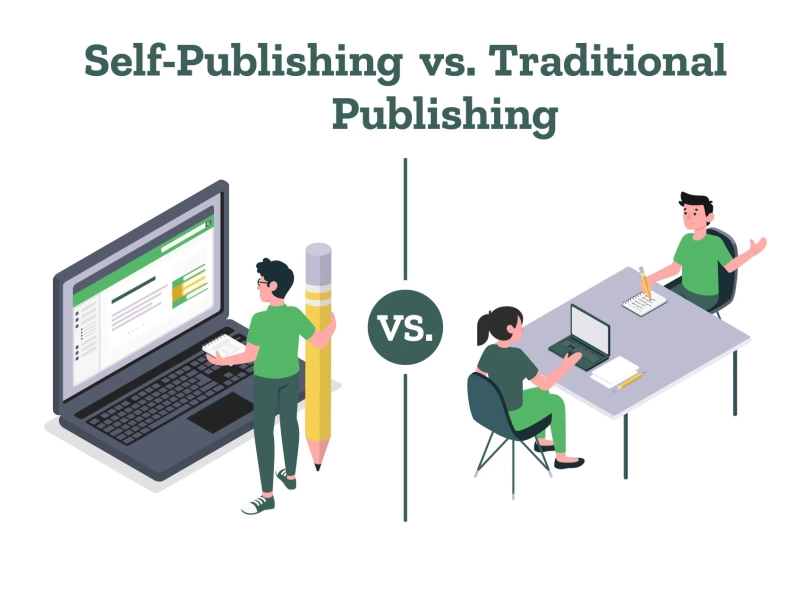Best Audiobook Production Services in NYC for Self-Published Authors
In today’s publishing landscape, audiobooks are no longer just an optional add-on for authors—they are a vital channel to reach a growing audience of multitaskers, commuters, and audiobook lovers. For self-published authors especially, audiobooks offer a powerful way to expand reach, boost income, and increase exposure. If you’re a self-published author based in New York City or nearby, the good news is that you’re in one of the best places in the world to produce a high-quality audiobook. New York City is a hub for media, publishing, and voice talent. With numerous professional recording studios, experienced audio engineers, and trained narrators, NYC offers an ideal ecosystem for audiobook production. But finding the right service can be overwhelming, especially when you’re juggling the demands of writing, marketing, and distribution. In this blog, The New York Publishers will guide you through what to look for in a top-tier audiobook service and what you should expect from the process—from manuscript preparation to final distribution. Why Audiobooks Matter for Self-Published Authors The audiobook market has exploded in recent years. With more listeners turning to audio for entertainment, education, and inspiration, audiobooks now account for a significant portion of overall book sales. For self-published authors, this represents a unique opportunity to: Reach new audiences: Many people prefer listening over reading, especially during commutes, workouts, or daily chores. Create an additional income stream: Audiobooks can be monetized on platforms like Audible, iTunes, and Spotify. Boost brand visibility: Being present in audio form helps build a multi-format author brand that resonates with different types of consumers. Core Elements of Audiobook Production Before diving into production services, it’s important to understand the key components involved in creating an audiobook: 1. Manuscript Preparation Before recording starts, your manuscript needs to be reviewed and formatted for audio. This includes: Removing or rephrasing visuals, graphs, or tables. Converting hyperlinks or citations into verbal references. Clarifying transitions, headings, and lists for smooth narration. 2. Narration You’ll need to decide whether to narrate the book yourself or hire a professional voice actor. Each option has pros and cons: Self-Narration adds authenticity and a personal touch, especially in memoirs or nonfiction. Professional Narrators bring experience, vocal range, and consistency, which is often preferred for fiction or highly dramatic content. 3. Recording Recording should be done in a soundproof studio using professional-grade equipment. The quality of the recording environment plays a major role in the final product. Even minor background noises can distract listeners. 4. Editing and Post-Production This stage involves cleaning up the raw audio, removing mistakes, pauses, or noise, and adjusting levels for consistency. It also includes mastering, which ensures the file meets technical standards set by distribution platforms. 5. Proofing and Quality Control An audio proofreader listens through the entire recording to catch any misreads, pronunciation errors, or technical glitches that slipped through. 6. Distribution Once finalized, your audiobook must be formatted and submitted to distributors. This includes writing a compelling description, setting metadata, and choosing price points. What to Look for in an Audiobook Production Service Whether you’re hiring a freelancer or partnering with a full-service studio, here are the key factors to consider: 1. Experience with Independent Authors Look for services that specialize in or are familiar with self-published authors. These professionals often offer more flexibility, personalized service, and budget-conscious options compared to those geared toward large publishing houses. 2. Full-Service Capabilities Many authors prefer an all-in-one service that includes manuscript prep, narration, recording, editing, proofing, and distribution. This approach ensures smoother communication, quicker turnaround, and a more cohesive final product. 3. High-Quality Equipment and Studios Check that the service uses professional recording equipment and provides a quiet, acoustically-treated studio environment. If you’re planning to narrate the book yourself, ask whether they offer coaching, technical support, or remote recording options. 4. Professional Narrators and Casting A good service should have access to a roster of trained voice actors with various accents, styles, and tones. They should also help you find a narrator who aligns with your book’s genre and tone. 5. Transparent Pricing Audiobook production can vary in price depending on length, narrator fees, studio time, and editing needs. Look for clear, upfront pricing—ideally broken down by service. Some providers charge per finished hour, while others offer flat rates for complete projects. 6. Turnaround Time Ask about typical timelines. An average 8-hour audiobook can take several weeks from recording to final approval, especially when multiple rounds of editing and proofing are involved. 7. Distribution Support Ensure the service can help with submitting your audiobook to major platforms such as Audible, Amazon, iTunes, Kobo, and Spotify. Some may even offer distribution-only packages if you’ve already recorded your book. 8. Royalty and Rights Advice Independent authors should retain full ownership of their content. A reliable service will be clear about rights, royalties, and distribution agreements, helping you avoid common traps or exclusivity clauses you may later regret. Additional Features That Add Value When comparing audiobook production services in NYC, you might also find providers offering the following extras: Voice Coaching for Authors: If you’re narrating your own book, some studios offer voice coaching to improve pacing, tone, and clarity. Marketing Support: Help with creating promotional snippets, author websites, or press kits to launch your audiobook. Custom Sound Design: For fiction or fantasy titles, sound effects and ambient music can enhance listener immersion. Multilingual Production: In a city as diverse as NYC, many services offer narration in multiple languages for broader audience appeal. Should You Narrate Your Own Book? This is one of the biggest decisions self-published authors face when producing an audiobook. Here are some considerations: Narrate It Yourself If: Your book is nonfiction, especially memoir or self-help. Your audience knows and values your personal voice. You’re confident in your speaking ability and have time to commit to recording. Hire a Narrator If: Your book contains complex characters or voices. It’s fiction that requires emotional range or dramatic flair. You’d prefer a polished performance handled by an experienced voice actor. Regardless









